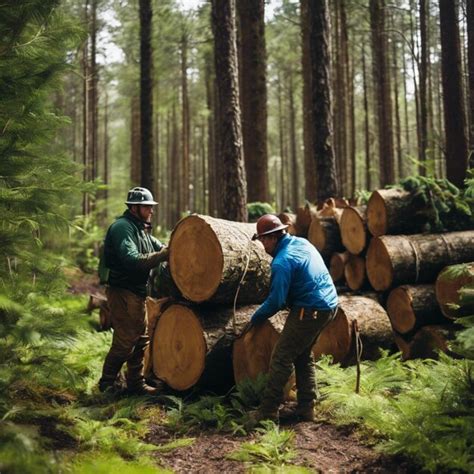Forests, the lungs of our planet, are facing unprecedented challenges from climate change, deforestation, and habitat loss. Protecting and managing these vital ecosystems requires knowledgeable and skilled professionals equipped with a comprehensive understanding of forestry. If you aspire to become an environmental steward, pursuing a degree in forestry is the first step towards a rewarding career.

Top-Ranked Forestry Colleges
Aspiring foresters have a plethora of options to choose from when seeking higher education. Several universities and colleges across the United States offer exceptional forestry programs, ensuring a solid foundation for future careers.
| Rank | University | Location |
|---|---|---|
| 1 | Yale University | New Haven, CT |
| 2 | University of Washington | Seattle, WA |
| 3 | Humboldt State University | Arcata, CA |
| 4 | Oregon State University | Corvallis, OR |
| 5 | University of California, Berkeley | Berkeley, CA |
Specialized Forestry Programs
Modern forestry programs extend beyond traditional areas of study, encompassing diverse subfields such as:
- Urban Forestry: Managing and protecting trees in urban environments.
- Wildland Fire Management: Preventing and suppressing wildfires while protecting ecosystems and communities.
- Sustainable Forestry: Balancing timber production with environmental conservation and ecosystem health.
- Silviculture: Cultivating and managing forests for specific purposes, such as timber production or ecosystem restoration.
Career Opportunities in Forestry
A forestry degree opens doors to a wide range of career opportunities, including:
- Forester: Managing forests, conducting research, and providing advice on forest management practices.
- Wildfire Specialist: Preventing and fighting wildfires, protecting lives and property.
- Environmental Consultant: Advising on environmental impact assessments and regulatory compliance for land-use projects.
- Forest Pathologist: Studying and treating diseases that threaten forests.
- Wildlife Biologist: Managing and conserving wildlife populations within forest ecosystems.
Common Mistakes to Avoid
Aspiring foresters should be aware of common pitfalls that can hinder their academic and professional journey:
- Lack of Field Experience: Forestry is a field-intensive discipline. Seek opportunities for hands-on experience through internships or research projects.
- Neglecting Communication Skills: Effective communication is crucial for conveying complex technical information to diverse audiences.
- Ignoring Legal Aspects: Forestry practices are subject to legal regulations. Familiarize yourself with the relevant laws and regulations.
- Underestimating Business Skills: Forestry is a business. Acquire knowledge in business management and marketing to succeed in a competitive industry.
Frequently Asked Questions
1. What is the starting salary for forestry graduates?
According to the U.S. Bureau of Labor Statistics, the median annual salary for foresters was $61,260 in May 2021.
2. What are the job prospects for foresters?
The U.S. Bureau of Labor Statistics projects a 7% increase in demand for foresters from 2021 to 2031, which is faster than average for all occupations.
3. What is the difference between forestry and natural resources management? Natural resources management encompasses a broader scope, including managing water, soil, fish, and wildlife, while forestry focuses specifically on forest ecosystems.
4. Is a forestry degree required to be a forester? A forestry degree is highly recommended, as it provides the comprehensive knowledge and skills necessary for success in the field.
5. What are the benefits of getting a forestry degree?
A forestry degree empowers you to protect and conserve forests, contribute to sustainable land use, and foster a deeper understanding of the natural world.
6. What are the challenges facing forestry professionals?
Climate change, deforestation, habitat loss, and invasive species are among the major challenges facing forestry professionals.
